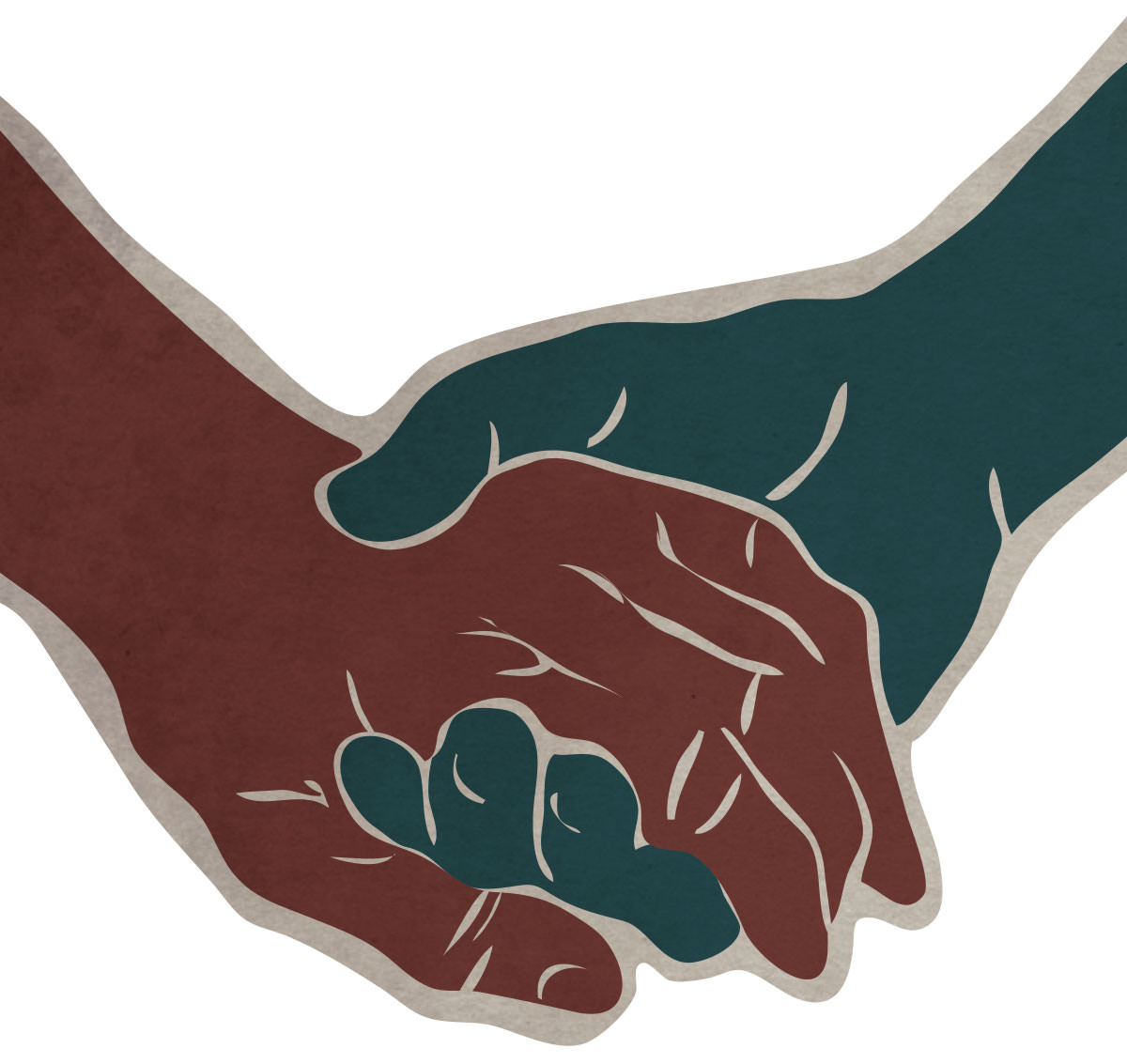
Before the wake began, my cousins and I watched as my mother, her older sister, and her younger brother prayed together as a family. Suddenly, my mom started to pray eloquently in our regional dialect. Something was happening; my mother didn’t generally pray publicly or spontaneously.
Her prayer was this: “Let’s not have any more misunderstandings, which get in the way of being a family.” Tears and cries filled the room. This was a poignant and relevant wish — my grandma’s last wish and clearly a work of the Holy Spirit — resulting from the family’s long history of conflict and periods of estrangement from each other.
As painful as it is that we are not a tightly connected family, the long estrangements had been a necessary result of difficult relations, broken promises, and unresolved cross-generational trauma.
The difficult relations between my mother and grandmother began before my mom was even born. My grandmother had dreamed of being famous and becoming an actress. Her working-class family had artistic talent. Her father was a scriptwriter and play director, and one of her brothers was a painter. Like many families in the Philippines, they were also Catholic. My grandma prayed the rosary almost daily. She observed Catholic traditions from both the liturgical calendar and cultural folk traditions.
But she came from a family characterized by strife, compounded by their experiences of poverty. Grandma’s father continually discouraged her from pursuing the arts, wanting her to focus on being a dutiful daughter and helping raise herself and her family out of poverty. This angered her, leading to a lifetime of bitterness. That bitterness made her harsh by the time her children were born. This would make my mother’s life difficult in many ways.

My grandfather had a hard time finding work because of an illness, so my grandma and mom had to make money for the family. That didn’t stop my mom from dreaming about a life of economic self-sufficiency and one day owning her own business. In her early 20s, she opened a local travel agency. At 28, she was managing her own small business development and consulting firm in the United States. My mom always asked God for guidance and thanked him for every blessing she experienced.
But her insistence on running her own business did not sit well with my grandma — it went against her idea of a dutiful daughter. My mom was scolded for bothering her older sister and for not being a good role model to her younger brother. Whenever my mom defied my grandma, Grandma would retaliate.
Growing up, I always sensed tension whenever the two of them interacted. Their relationship was difficult and fragile. The constant fighting, disrespect, and experience of being unwanted took a toll on my mom’s well-being.
In the mid-1990s, my mom ran a retail shop in the Philippines called Signature Shop. She would travel from the United States to the Philippines to visit the shop. On one of her trips to the Philippines, she traveled with my stepfather. When they were picked up by a transportation service, the driver drove them off the path, into a guerrilla group’s area. They were instantly captured. Through a short miracle of distraction, they escaped. But when my mom shared the horror of what she had been through, my grandma replied, “It is your karma,” meaning “You deserve it”. That cruel reply stemmed from her disappointment that my mom had divorced my father and remarried.
It was the straw that broke the camel’s back. My mother stopped speaking to her mom for more than seven years.
In 2009, my grandmother’s renal (kidney) failure required her to come to the U.S. for treatment. This forced my mom and her siblings to be on speaking terms again, since they had to work together to decide my grandma’s care. My mom also faced the decision of taking on more clients versus making more time to care for her mom. She realized that if she did not get involved with her mom’s care, she would regret it for the rest of her life. Her core values always included relationships.

For the first several years, my grandma lived with my aunt who cared for her. My mom, sister, and I would visit on the weekends, spending quality time with my grandma and my aunt’s family. We visited my grandma at the dialysis center, where we learned the importance of being present with her. As she grew weaker, she was hospitalized more frequently and was eventually moved to a nursing home. All of the family had to work together, even though it was still difficult.
Through those tumultuous years, the relationship between my mom and my grandma was gradually re-established, along with my mom’s relationship with her siblings. But the experience was not smooth sailing; it was more like a dormant volcano, building up alongside connecting moments. Even so, we made the most of our remaining time as my grandma’s health deteriorated.
Coming to terms with each other grew easier as time passed. One of the best moments with my grandma was on January 1, 2017, when we celebrated her 75th birthday at her nursing facility with all of the family. We brought food and music. We videotaped our singing together. It was meaningful for me to see all of my family together. It was also the last time we would be with our grandmother.
Five days later, an ambulance picked her up. Her spirit seemed ready to move on, as she tired of fighting with her failing body. Shortly following the ride to the hospital, she died. We were devastated. At the same time, we felt the Holy Spirit’s presence around us that week, reminding us how much both Grandma and God loved us. My mom was finally able to make peace with her mom. We proceeded to have the wake and funeral to honor her and say our goodbyes.
Being a part of this narrative as a daughter and granddaughter was not always easy. On one hand, my mom and dad have always made me feel loved and are intuitive, forward-thinking people, which helped a lot with my self-esteem. I am grateful that my mom and I have a good relationship because of my mom’s choice to live into her calling and to seek understanding and truth. On the other hand, the ongoing estrangements and drama in my mom’s family weighed heavily on me. We joked that our family drama would make a great soap opera. While that is not as far-fetched as it may sound, it is not something I would ever wish on anyone.
The lack of quality family relationships has given me insecurities about my own ability to create a loving marriage and family of my own. But it has also created a passion for sustainable communities, interdependence, healing, personal growth, and elevation of the human consciousness and spirit. God has placed these values in my heart.
As people were sitting down at my grandmother’s wake, one of my cousins started playing a video paying homage to my grandma, showing her in all aspects of life. It was moving to see pictures of her as a baby, then a young adult, and finally an elder.
However, the pictures didn’t show the family’s hardships, the long years of estrangement. They didn’t show how the unresolved wounds between my relatives tragically kept me from ever fully knowing my grandma and other members of her family. They didn’t show my mom left on her own or my fears of conflict and loss. They didn’t show how often we chose complication and broken pieces over enabling toxicity and abuse.
But for all the painful memories the pictures didn’t show, I was reminded that these times made me and my mom the people that had God called us to be: women who embody empowerment, strength, compassion, and community. My hope is that I also become the person who will break the cycle.
The wounds and scars were still present during the wake. Turbulent waters still flowed between my mom and her siblings. Yet, they managed to come together to honor their mother. It was a miracle of God that all of us were together in one place at the moment of death, even though that moment was a fragile one.

Xeres Villanueva (she/her/hers) has deep roots in community building, social entrepreneurship, spirituality and activism. She is involved in community building projects such as Tuesday Night Cafe and various social justice groups. She has been in the worlds of freelancing, small business and non-profits throughout her career. Xeres is also a co-founder of the WE Empowerment Center, a grassroots financial receivership organization dedicated to support liberatory community and creative projects. Her interests are media and pop culture, cultural and art activism, liberation movements, economic empowerment and food.

Hwanhee Kang is a Seoul-born, Texas-raised designer; she graduated from the University of Texas at Austin with a degree in textile and apparel. After working in the fashion industry for almost four years, she was ready for a new challenge. Graphic design has been an incredible journey for her to approach design from a whole different angle and discover all the new possibilities it brings.